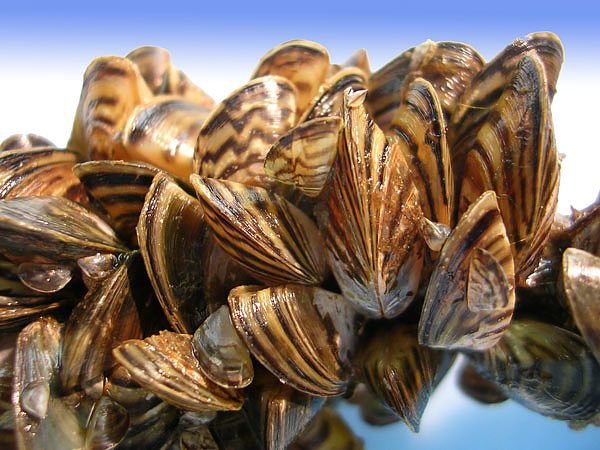
UPDATE: The Senate is expected to vote on the “Vessel Incidental Discharge Act” (VIDA) the week of April 16, 2018. Please call your Senators as soon as possible to tell them to not support the Coast Guard Authorization Act unless the VIDA provisions are removed. The call template below has been updated to reflect this timing.
The Senate could vote as soon as today on a bill that could weaken Clean Water Act protections against the spread of invasive species in waterways. The “Vessel Incidental Discharge Act” (VIDA) has been included in a bill reauthorizing funding for the Coast Guard (S. 1129). VIDA would exempt ballast water from regulation by the Environmental Protection Agency (EPA) under the Clean Water Act, shifting regulation to the Coast Guard, weakening the ability of the government and the public to stop the spread of invasive species.
Vessels pump in ballast water from waterways and carry it in order improve the vessel’s stability and balance, especially for large cargo ships that might be empty for part of their journey. This water can contain a wide range of plants, animals, and even viruses, all which get carried and then released when the vessel no longer needs the ballast water. Worldwide, there are serious issues with invasive species traveling in ballast water and then being released into new ecosystems.
One of the best-known examples of aquatic invasive species with devastating impacts in the United States is the zebra mussel. Native to Eastern Europe and Russia, the mussel was brought to the United States through ballast water. In the Great Lakes, the mussels have caused extensive ecological harm, leading to a decrease in native fish populations. They grow so fast that they often clog intake pipes for water treatment plants and power plants. The mussels have cost taxpayers and industry in the Great Lakes billions of dollars.
The zebra mussel issue in the Great Lakes is a just the tip of the iceberg. Unfortunately, there is a whole host of invasive species threatening not only the Great Lakes but all waterways in the United States. Many of these organisms are known to travel in ballast water, which is why we need strong regulations to control how and when ships can take in and release ballast water, and requirements that vessels treat the water to kill organisms before they are released into remote ecosystems. Environmental groups fought hard to have the EPA recognize that ballast water releases are harmful and must be regulated as a pollutant under the Clean Water Act and EPA has created regulations to minimize the impacts of ballast water.
However, VIDA would exempt ballast water from the Clean Water Act, eviscerating EPA’s authority, and would also preempt state authority to deal with unique regional threats. It would also prevent the public from being able to enforce ballast water requirements when vessels do not comply with the law. VIDA would make our waterways more vulnerable to invasive species and their enormous economic impacts, and leave states and the public helpless to do anything.
Please take action as soon as possible!
Please call your Senators to tell them to not support the Coast Guard Authorization Act unless the VIDA provisions are removed Here is a template that you can use:
“My name is [YOUR NAME] and I am a resident of zip code [ZIP CODE]. I am calling to ask you to oppose the Motion to Proceed to the Coast Guard Authorization Act of 2017, which is Senate Bill 1129. The Coast Guard Authorization Act includes the Vessel Incidental Discharge Act, which would lead to weakened protections against invasive species in waterways. The Vessel Incidental Discharge Act would strip the Environmental Protection Agency of its Clean Water Act authority to protect against ballast water pollution from ships. Ballast water carries invasive species into waterways, severely disrupting the local ecosystems. This can have serious economic impacts on communities that rely on waterways. For example, zebra mussels were introduced to the United States through ballast water and have caused serious adverse impacts to industrial and recreational users of waterways. In the Great Lakes, from 1993 to 1999 alone, zebra mussels caused an estimated five billion dollars in costs for a wide range of industries. We need strong protections against invasive species. This is why I am asking you to oppose the e Coast Guard Authorization Act until the provisions weakening ballast water regulation are removed from the bill. Thank you.”
Please personalize this message with any invasive species and impacts that are especially concerning to you.
[CongressLookup show=”senator”]